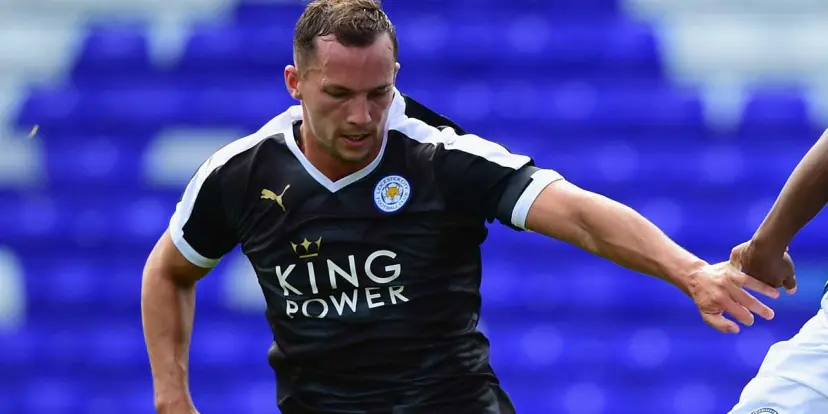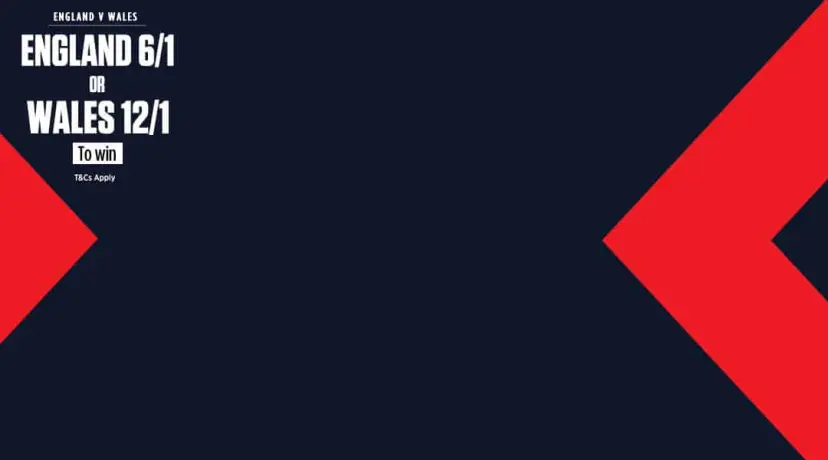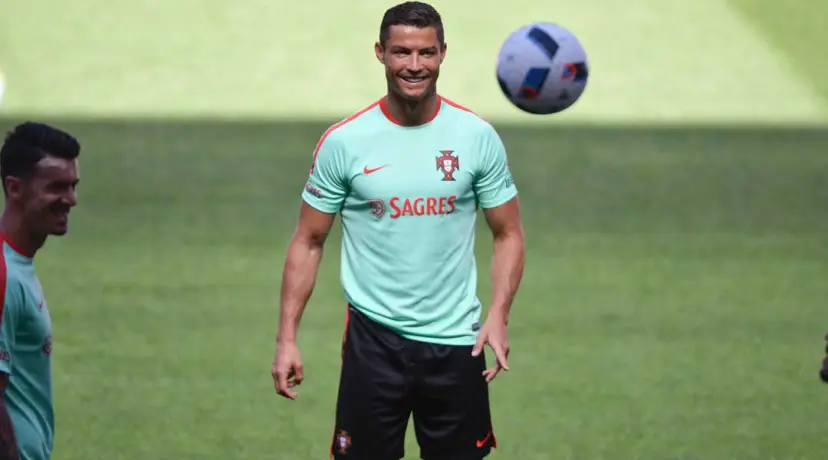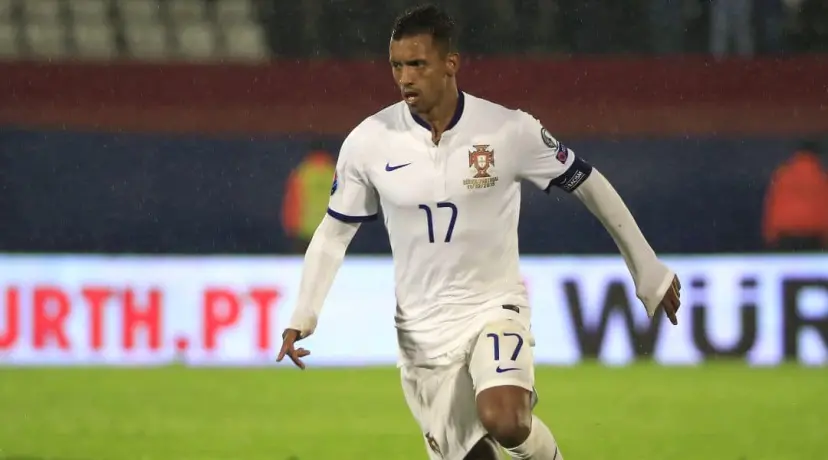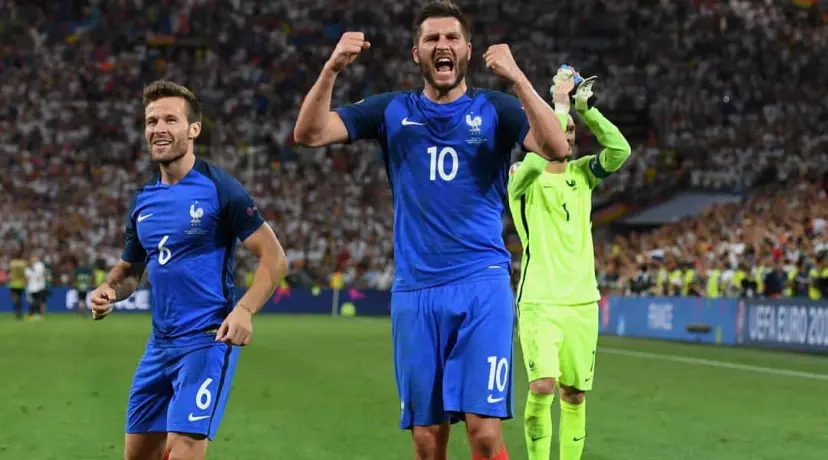Euro 2016 Burning Question: Are Germany solid enough defensively?
Published: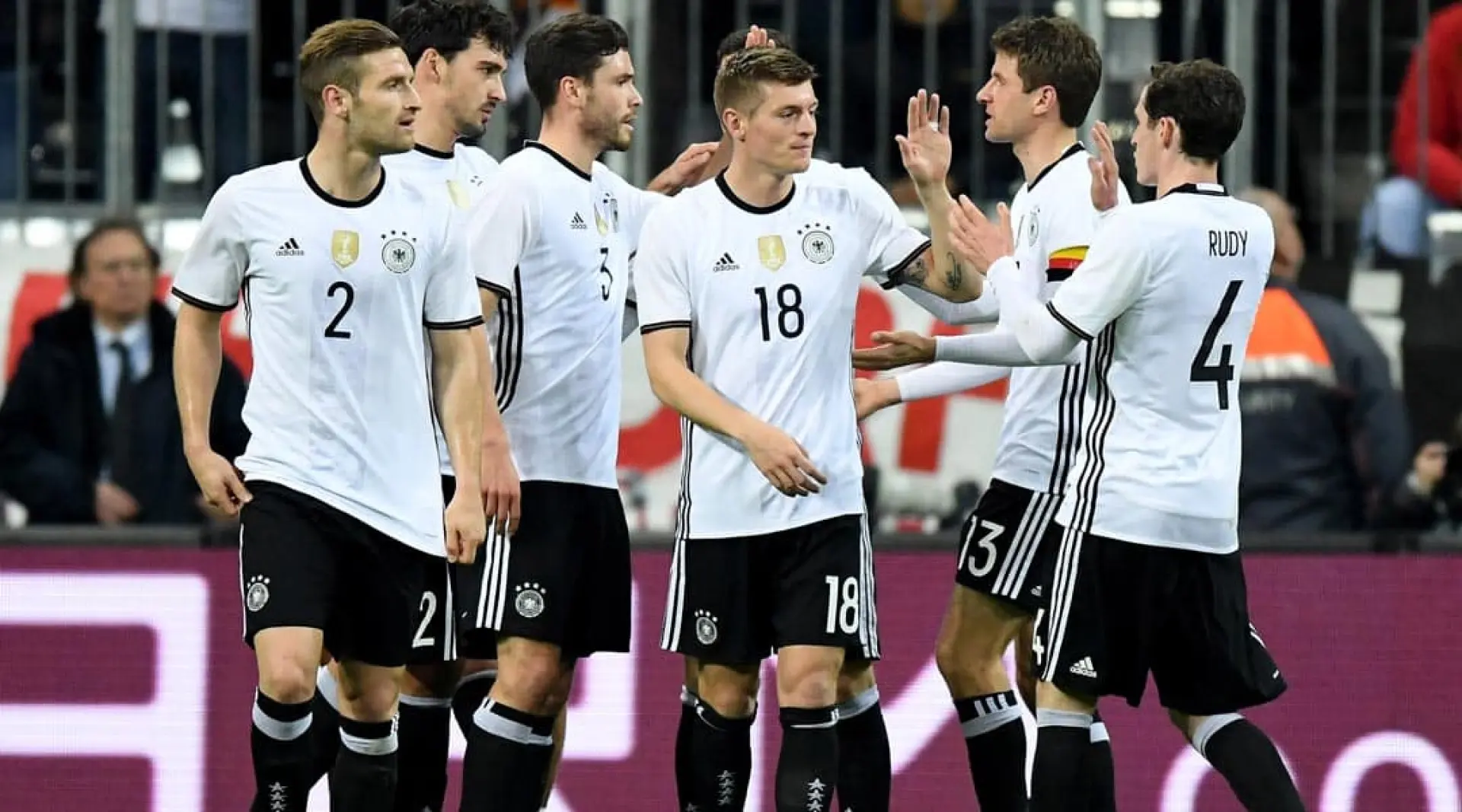
Our look at the major questions surrounding the fancied nations competing at Euro 2016 has already considered talking points surrounding France, Spain, Italy, Portugal and Belgium.
Next up is reigning World Cup winners Germany, who are out to follow in the footsteps of Spain by winning successive major tournaments.
However, there are some significant absentees from the party that defeated Argentina in the final of the last World Cup. Captain Philipp Lahm and reliable goal getter Miroslav Klose have retired from international football, while the influential Bastian Schweinsteiger has been struggling with injury.
This didn’t prevent the Manchester United midfielder making Joachim Loew’s final 23-man squad, alongside other veteran Lukas Podolski. Here is the complete German squad, minus Marco Reus who failed to persuade the German staff that he was fit enough to take part:
OFFICIAL #EURO2016 SQUAD
Germany announce their 23… pic.twitter.com/LpRhRIFJuh— UEFA EURO 2016 (@UEFAEURO) May 31, 2016
Qualifying
Reus also missed the 2014 World Cup because of injury, but given he only featured in four of Germany’s qualifiers, Loew has enough attacking talent at his disposal to cope.
In fact, only central defender Jerome Boateng was an ever-present through all 10 qualifiers, with Germany progressing in top spot from Group D, despite suffering away reverses to fellow Euro 2016 participants Poland and the Republic of Ireland.
From an attacking perspective Germany seem well set, given no other team had more goal attempts during qualifying. Although it is a slight concern that 11 of their 24 goals at this stage arrived at minnows Gibraltar.
However, it is another statistic that involves Gibraltar which is the most concerning surrounding Germany.
Defending and friendly clues
Since winning the World Cup, the Germans have played on 18 occasions. They have kept clean sheets in just four of them and two of these came against a Gibraltar side which managed only two goals across all of qualifying.
Czech Republic (14) and Poland (10) are the only teams competing at Euro 2016 which shipped more during qualifying.
Preparations haven’t gone smoothly in the four friendlies since qualifying concluded either, with Germany failing to keep things tight in a 2-0 loss to France, a 3-2 reverse to England and most recently in a 3-1 defeat to Slovakia.
Here is how Loew set his team up in the Slovakia setback:
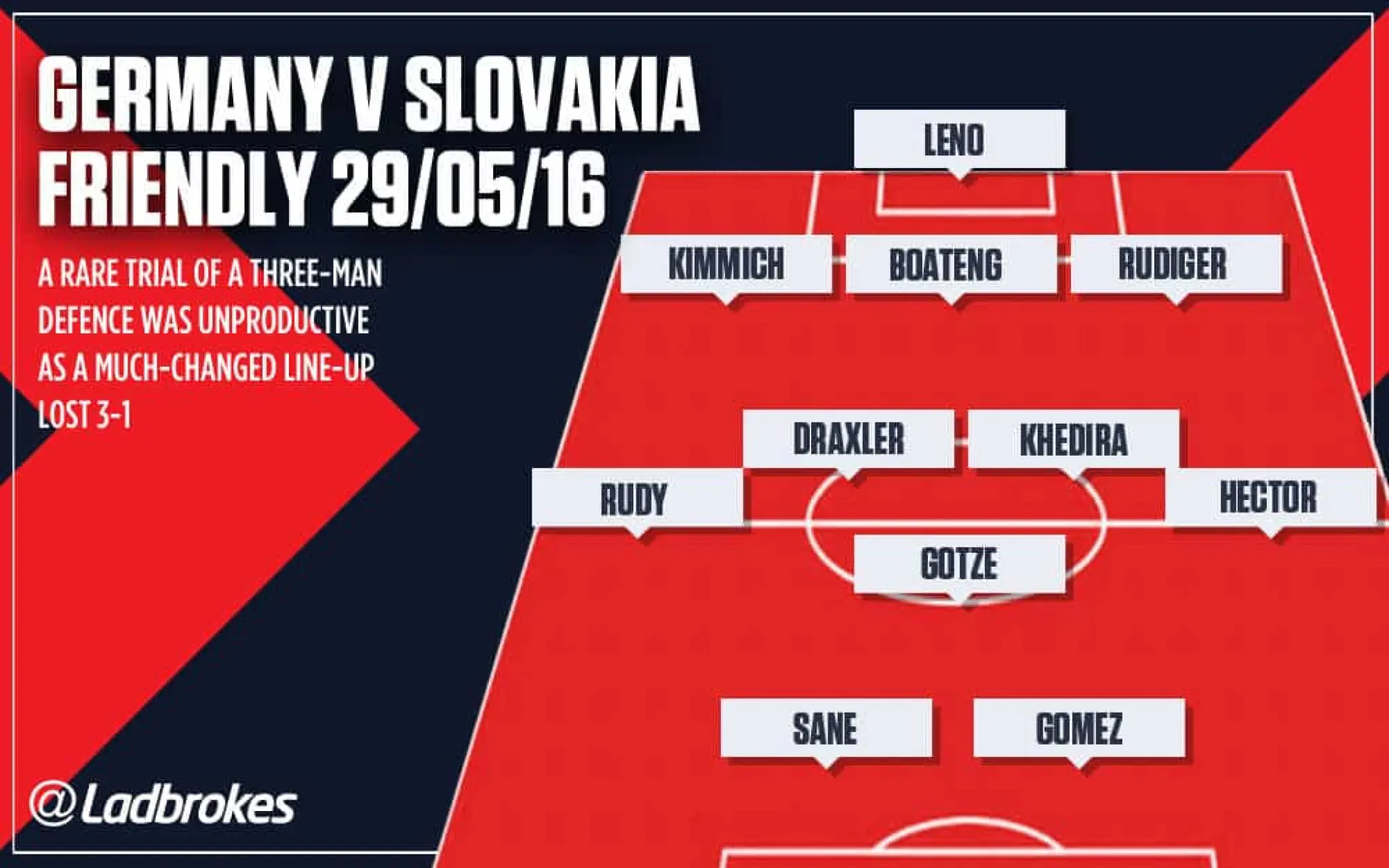
This match was a slight one-off in the sense that Loew rolled out a back three, which is something that is fairly rare across his stint in charge.
A lack of natural options at full-back is a leading reason for this possibility, but this is no different to the last World Cup when Schalke skipper Benedict Howedes was successfully used as a makeshift left-back.
Whether Emre Can and Antonio Rudiger fill in as improvised right-backs this time is irrelevant, it is the midfield balance that Loew needs to get right.
Central midfield quandary
Schweinsteiger and Sami Khedira provided the right balance at the last World Cup, with neither a true holder. But between them they worked out when one could push forward and attack, while the other held his position.
Toni Kroos has now become a regular in the deeper midfield role for both Germany and Real Madrid and his ability to dictate play and control the tempo of a game brings a different skill to the table.
However, Real have been too open when defensive midfielder Casemiro hasn’t played alongside Kroos and Luka Modric and Germany appear to be struggling in the same manner without a recognised holder.
One way around this is to push Kroos forward into more of an advanced midfield role in which he started the World Cup final and again move chief playmaker Mesut Ozil into more of a wide starting berth.
Here is how Kroos and Ozil match up for their playmaking duties:
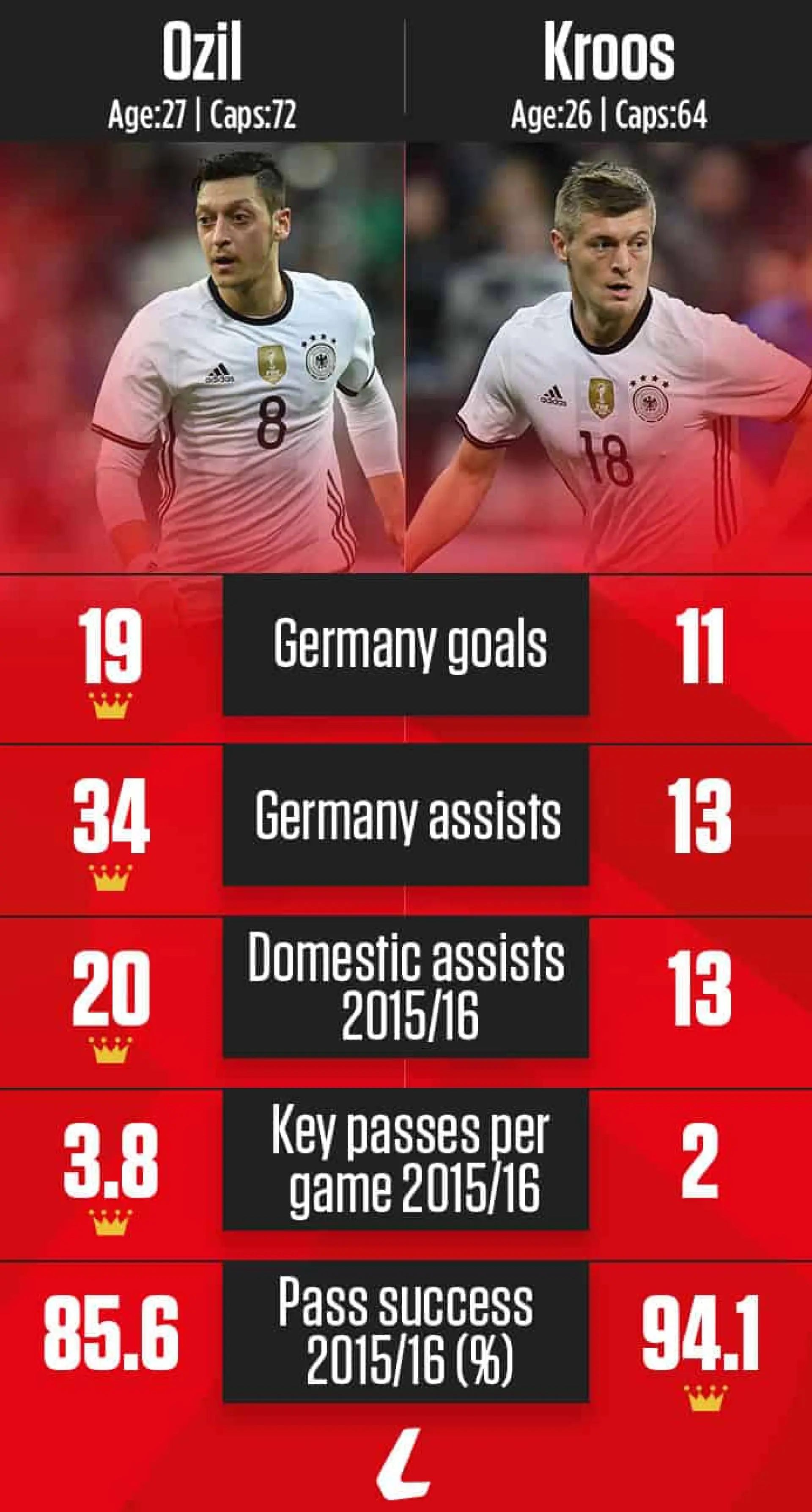
Picking the most talented players isn’t always conducive to being the strongest team and finding the right partner for Khedira could prove most essential to Germany winning Euro 2016.
Can has many of the same attributes as Khedira and this pair could work in tandem in a similar fashion to the latter and Schweinsteiger two years ago. Alternatively, Julian Weigl may only be 20, but he has excelled in a disciplined midfield position for Borussia Dortmund this term.
Playing Ozil wide would additionally help fill the void left by Reus down the left flank. This position seems more of a battle between Julian Draxler and Andre Schurrle, with the latter likely to lose on the basis that he is most regularly deployed as a substitute by Loew.
The other big selection headache for Group C, where Germany face Ukraine, Poland and Northern Ireland, is who will lead the line. Mario Gomez is the only out-an-out striker in the squad, but Mario Gotze has performed well as a false nine previously.
Germany are 4/1 to win Euro 2016 despite their defensive apprehension, while it is 4/11 they top Group C.
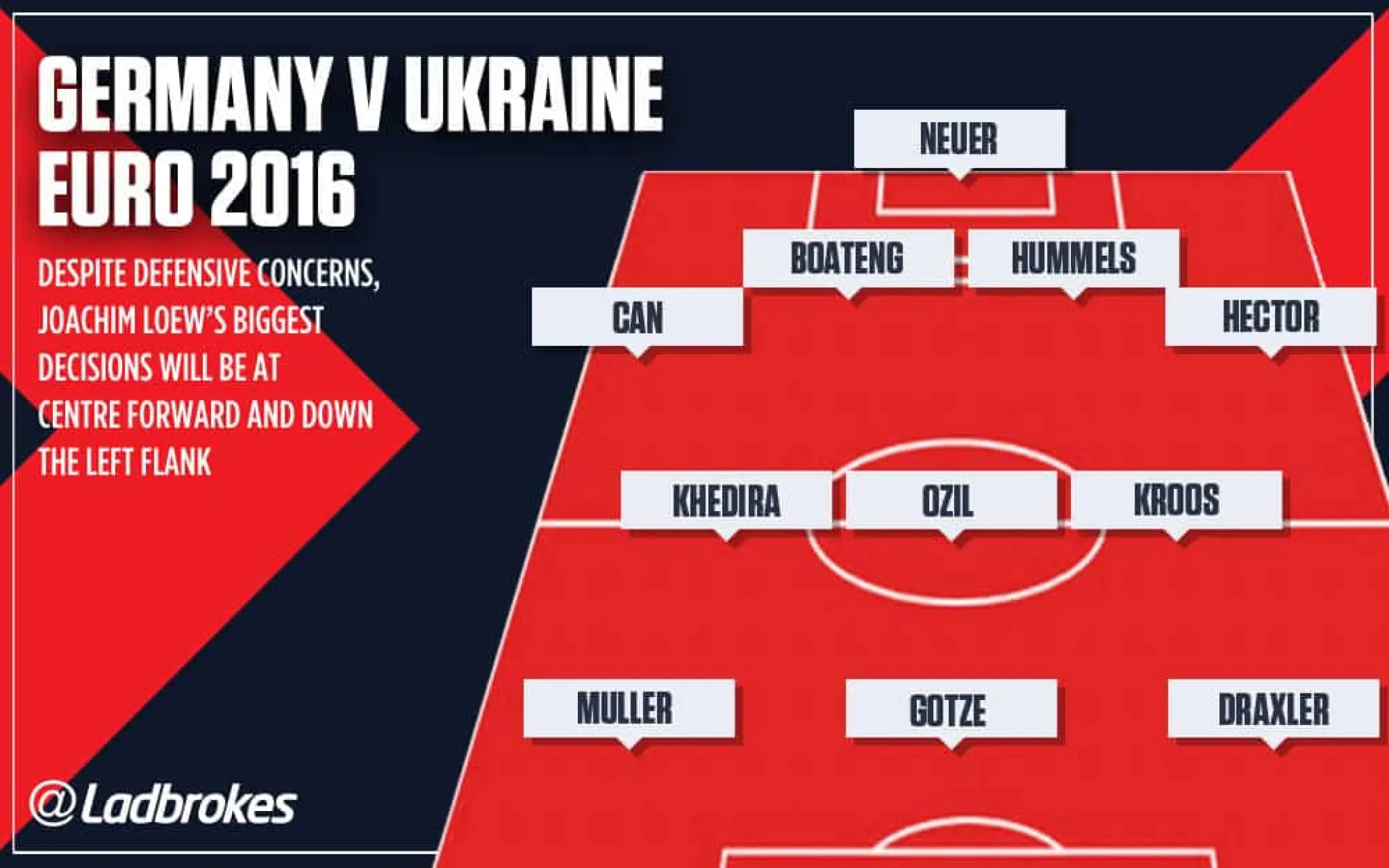
All Odds and Markets are correct as of the date of publishing.
